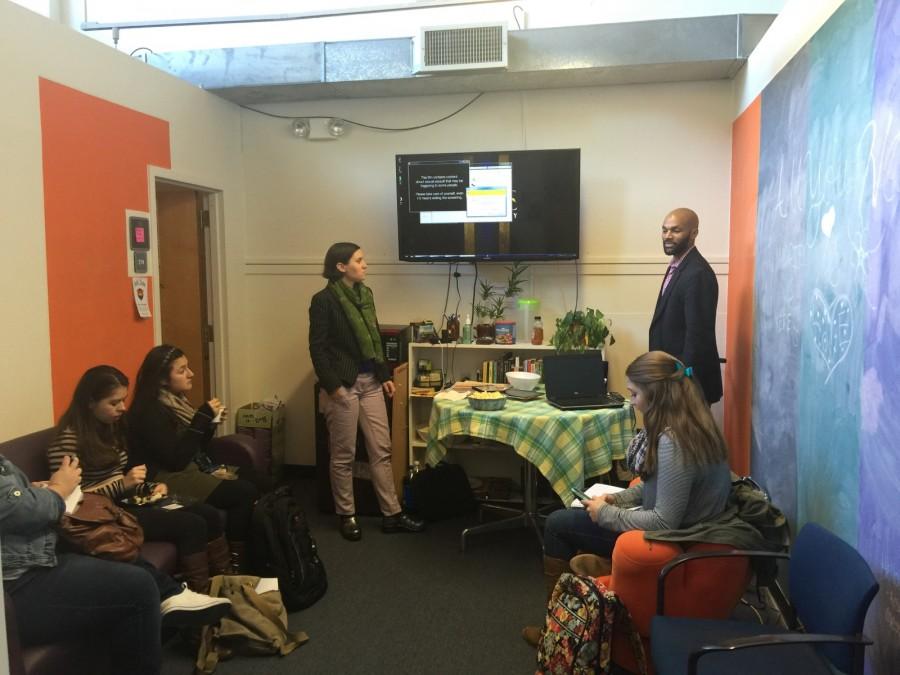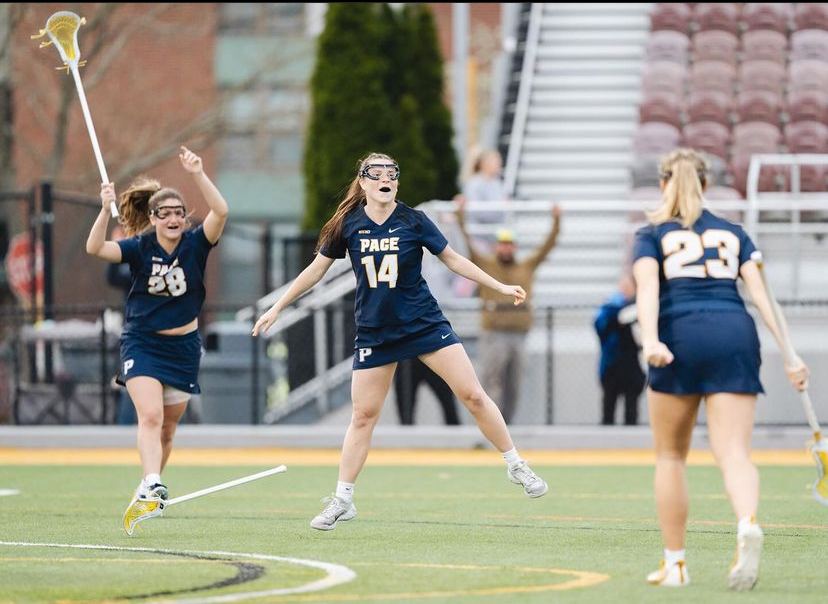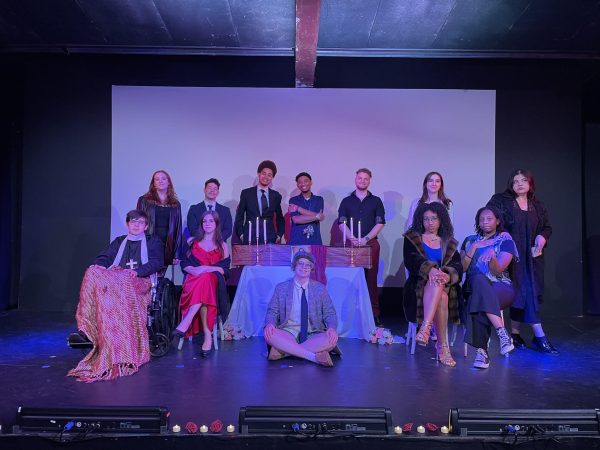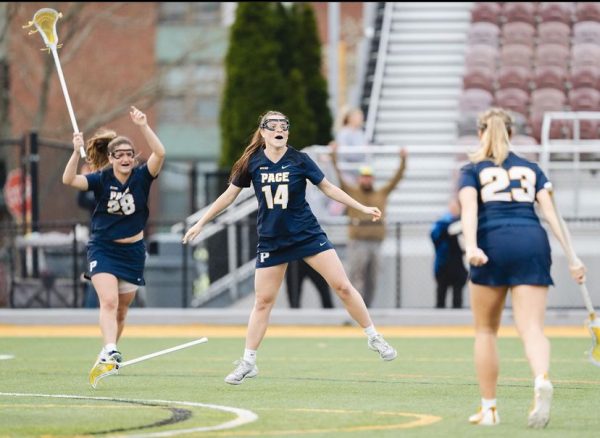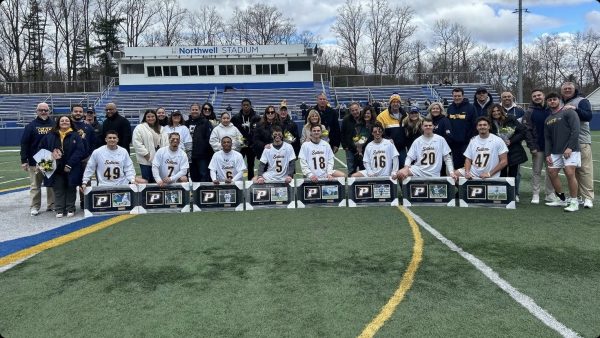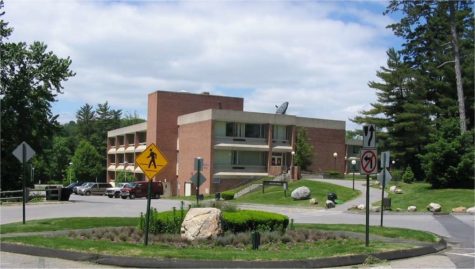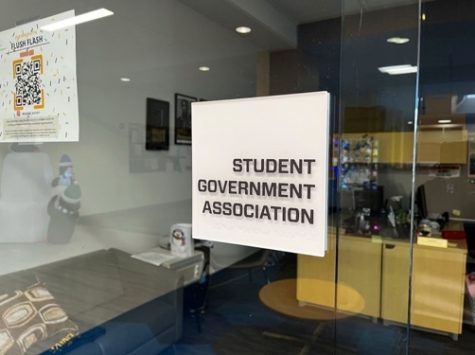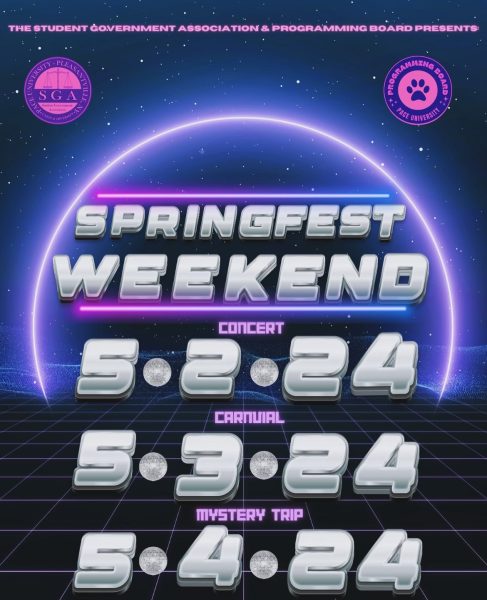It Was Rape: MADP Screens Documentary on Sexual Assault
November 2, 2015
The Office of Multicultural Affairs and Diversity Programs (MADP) hosted a screening of the documentary It Was Rape by Jennifer Baumgardner on Friday afternoon in Kessel Student Center to show the reality of sexual assault.
The documentary showed the stories of eight women who all had diverse experiences with sexual assault.
One of the stories was about a woman who was raped by her father from ages four to 10 because he was trying to “take back power” he lost as a child when he was raped by his brother.
Other stories focused on a woman who was labeled a slut by some of her classmates after her rape; a woman whose assailant’s condom broke during the attack, and who ultimately conceived a child; and a woman who did not tell her family about her attack until years after it happened, out of fear of judgment.
“[The film] covered different types of sexual assault, it didn’t have one [single] picture. The image that we all have [of rapists] is the shady guy in the bushes who jumps out. But in reality it is family members, boyfriends, associates, attractive guys, and not attractive guys,” Director of MADP Cornell Craig said. “It just gives you a full picture of what rape looks like, and how in some ways it’s even natural for [the victim] to grapple with the question of ‘What role did I play in my rape?’”
The documentary ended by showing where the women are today, with many of them speaking out about sexual assault, and one even asking her rapist to join her in speaking out in order to educate people on what the mental process of someone who commits rape is.
After the film was over, students discussed what parts resonated the most with them. One student was impacted by the silence of those affected by sexual assault.
“There is such a social silence about rape. That silence confuses women who are raped, because they think, ‘If it’s not spoken about, can I say it? Is it actually rape? What is it?’ So they go through these years of questioning their rape, and when they do realize it they are traumatized,” communications major Brittany Rodriguez said. “I think the purpose of the film is to change the cultural stigmas of victims talking about [rape].”
Freshman Kimberly Zuniga found the way that the victims empowered themselves after their assaults very moving.
“There is just a moment when [the fact that you were sexually assaulted] sinks in, and you can let it either engulf you, or you can try to move on and make a positive impact on the world through it,” Zuniga said. “It’s empowering to see all the amazing things these women are doing, despite what happened to them. The way that they took all that negativity and just used it to fuel and empower themselves even more in the world [is amazing], so that they could help other women, and other people.”
Craig discussed how sexual assault is not an issue that strictly affects women.
“Issues related to domestic violence, sexual assault, and rape are not women’s issues. They’re community issues. They are societal issues. I don’t think that any young man coming to Pace would feel comfortable if women didn’t feel comfortable at Pace,” Craig said.
Craig discussed the options students have if they are assaulted. These include going to campus security, faculty, and staff. Most members of staff are mandated reporters that must alert the University if they are told of a sexual assault.
Title Nine Coordinator and Affirmative Action Officer Lisa Miles investigates sexual assaults at Pace.
The only staff members that are not mandated reporters are campus Chaplain Sister Susan Becker, the Campus Health Center, and the Counseling Center.
For more information and resources on sexual assault, students can visit http://www.pace.edu/sexual-assault/.

